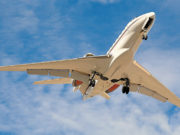
Change occurs in all organizations, including aviation companies and departments. In the early days of an organization, everyone involved in the planning and execution of a change can sit around one table to determine their roles in the process and then execute the change. As the company begins growing, many departments maintain direct and informal processes for managing changes, often with negative impacts on the projects, their cost estimates, and/or the assessments of the risks associated with the change. As a group still accustomed to adapting quickly to unforeseen or changing circumstances, the company’s managers and employees can minimize, but not eliminate, the effects of these mistakes. Further, many of today’s external aviation audit standards have incorporated requirements that the company have a change management process that includes all parts of the organization, especially safety.



